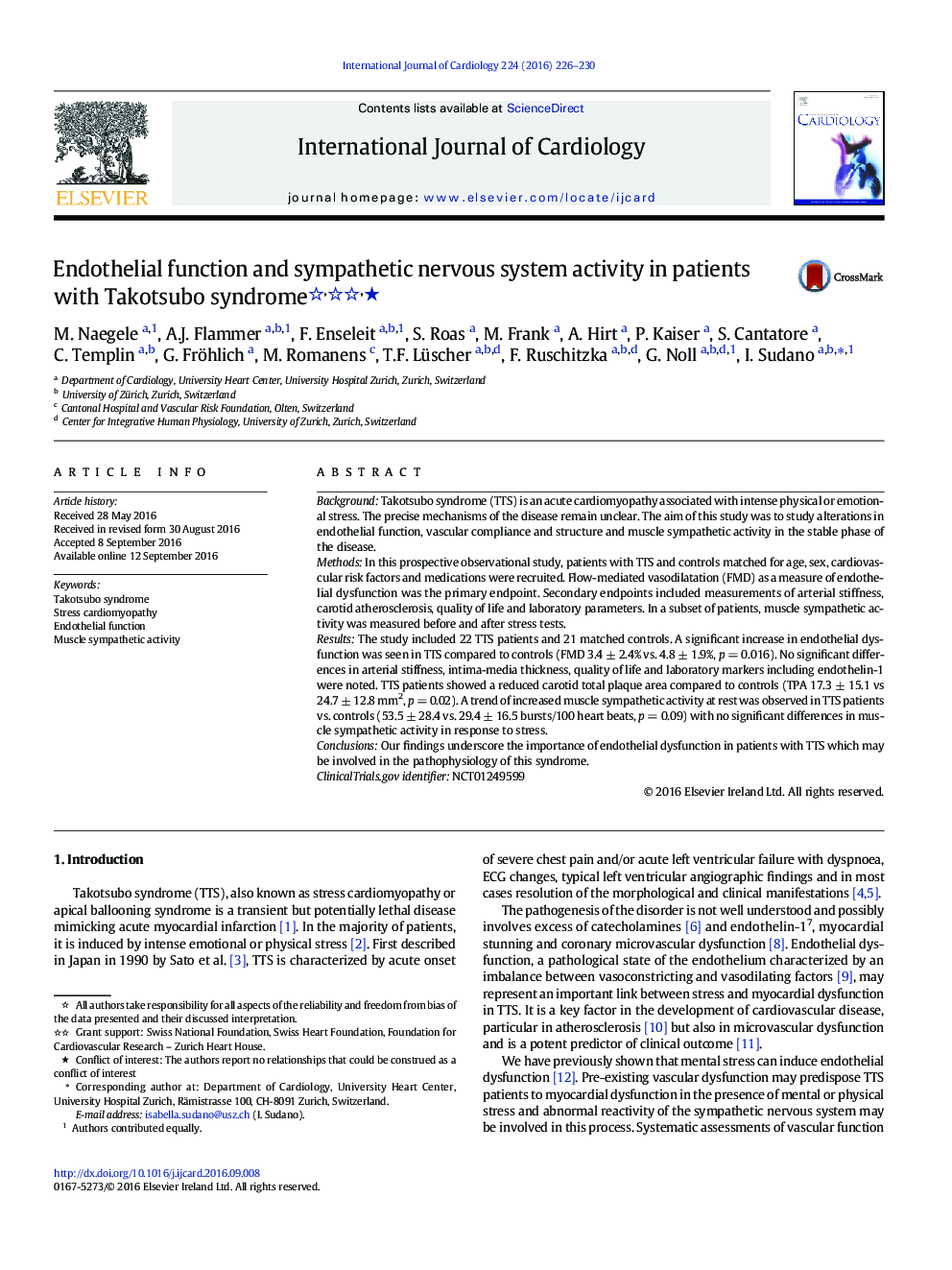| Article ID | Journal | Published Year | Pages | File Type |
|---|---|---|---|---|
| 5962395 | International Journal of Cardiology | 2016 | 5 Pages |
BackgroundTakotsubo syndrome (TTS) is an acute cardiomyopathy associated with intense physical or emotional stress. The precise mechanisms of the disease remain unclear. The aim of this study was to study alterations in endothelial function, vascular compliance and structure and muscle sympathetic activity in the stable phase of the disease.MethodsIn this prospective observational study, patients with TTS and controls matched for age, sex, cardiovascular risk factors and medications were recruited. Flow-mediated vasodilatation (FMD) as a measure of endothelial dysfunction was the primary endpoint. Secondary endpoints included measurements of arterial stiffness, carotid atherosclerosis, quality of life and laboratory parameters. In a subset of patients, muscle sympathetic activity was measured before and after stress tests.ResultsThe study included 22 TTS patients and 21 matched controls. A significant increase in endothelial dysfunction was seen in TTS compared to controls (FMD 3.4 ± 2.4% vs. 4.8 ± 1.9%, p = 0.016). No significant differences in arterial stiffness, intima-media thickness, quality of life and laboratory markers including endothelin-1 were noted. TTS patients showed a reduced carotid total plaque area compared to controls (TPA 17.3 ± 15.1 vs 24.7 ± 12.8 mm2, p = 0.02). A trend of increased muscle sympathetic activity at rest was observed in TTS patients vs. controls (53.5 ± 28.4 vs. 29.4 ± 16.5 bursts/100 heart beats, p = 0.09) with no significant differences in muscle sympathetic activity in response to stress.ConclusionsOur findings underscore the importance of endothelial dysfunction in patients with TTS which may be involved in the pathophysiology of this syndrome.ClinicalTrials.gov identifierNCT01249599
